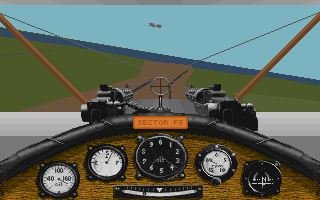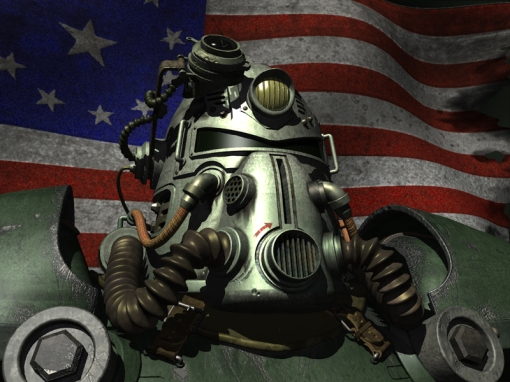Bobby Kotick is an asshole.
There. I said it and I’ll stipulate to it so you can understand where I’m coming from.
I’ve never met Mr. Kotick personally, and I understand from people who have that he’s actually quite nice and genial when you meet him face-to-face. That being said, Kotick, who’s been the head of the Activision/Blizzard behemoth for many years, certainly doesn’t do much to burnish his public image as being anything other than an asshole. This is, after all, the man who famously wanted to “take all the fun out of making videogames” and create a studio culture based on “skepticism, pessimism and fear.” Kotick by all accounts is a numbers guy who jettisoned the Vivendi portion of Vivendi/Blizzard during Activision’s takeover of the company precisely because he felt that any assets from there weren’t exploitable on year-over-year basis.
The thing is, Bobby Kotick did not kill Infinity Ward, nor did he kill the Call of Duty franchise (and make no mistake, Call of Duty is dead – it’ll just take a few years for the corpse to stop twitching). As events have unfolded in what’s being dubbed “InfinityGate,” it seems to me that Call of Duty was creatively dead the instant that Call of Duty: Modern Warfare 2 was released and contrary to popular opinion, it’s Jason West and Vince Zampanella who killed it. Ironically, they did it not out of malice, but out of the same high-minded creative impulses that caused them to create it in the first place. It’s the latest chapter in age-old story of the perpetual friction between the creatives and the suits. At its best, it can create amazing pieces of commercial art that go on to gross billions of dollars for companies and make a lot of people rich. At its worst, it can completely destroy companies and utterly annihilate a successful and enjoyable brand. Often, as in the case of Call of Duty, it does both.
Reading the 16-page lawsuit that was recently filed by Mr. West and Mr. Zampanella reveals some interesting factoids about the root of the issue. Page 7, paragraph 23 of the complaint is the key:
“West and Zampanella were not as eager as Activision to jump into the development of Modern Warfare 2.”
“…Activision forced infinity Ward’s employees to continue producing the games at a break neck pace under aggressive schedules, and West and Zampanella were concerned that Activision was emphasizing quantity over quality. Given Activision’s insistence that Infinity Ward continue to focus on sequels to Call of Duty games instead of new intellectual property, West and Zampanella were also concerned that Activision’s demands risked “burning out” the Infinity Ward employee’s creativity.”
You don’t really need to read between the lines to figure out what’s going on here – West and Zampanella were bored. That’s not really a surprise. West and Zampanella are creative types. What turns them on is the challenge of the new, the untested, the untried. They’re happiest when they’re branching out into areas where they can hit fast and blaze a trail. Bobby Kotick, on the other hand, is a numbers guy. He’s all about market share, ROI and delivering predictable earnings to shareholders in order to get the stock price up. Video games are just a means to that end. People like West and Zampanella start companies to indulge their creative instincts and people like West and Zampanella usually move on when people like Kotick show up. Activision actually had to back up a dump truck full of money and sign a Memorandum of Understanding promising the two complete creative freedom to get them to make Modern Warfare 2.
Was Infinity Ward naïve when they signed on with Activision in the belief that they would be allowed to truly keep their creative autonomy? Perhaps. It’s always possible that they thought they could become the next Blizzard, a developer that has essentially turned the tables on the traditional developer/publisher relationship. The thing is, the existence of Blizzard already makes the development of another developer with that kind of clout extremely unlikely. Publishers hate Blizzard for exactly the same reason that gamers love them – their independence. For somebody like Bobby Kotick, Blizzard is a perpetual nagging headache that he can’t get rid of without cutting off his own head.
A recent SEC filing indicated that 68% of the net 2009 revenue for Activision came from just three titles – Call of Duty, Guitar Hero and World of Warcraft. Looking at total revenue for Blizzard, an astonishing 98% of their revenue comes from WoW. For all the money that Blizzard shovels into Activision’s coffers every year, their prosperity rests on a single title. Should WoW suddenly start shedding players or one of their new games not perform to expectations, it’ll be a disaster not just for Blizzard but for Activision as a whole. Worse from Kotick’s point of view, Blizzard’s position vis a vis Activision means that there’s not a lot of pressure that they can bring to bear on Blizzard as long as WoW continues to be the goose that lays the golden eggs. That means that something that Blizzard by itself could survive, a serious delay in the launch of StarCraft II or Diablo III, for example could spell disaster for a company and an executive cadre that live and die by quarterly earnings reports.
Executives like Kotick hate unpredictability for exactly that reason and Blizzard’s essential autonomy makes them extremely unpredictable. The reason that Treyarch was tapped to bring out an off-year version of Call of Duty was precisely so that the company could shore up its revenue stream if some of its high profile titles slipped with as close to a guaranteed winner as you can get in this industry. Bobby Kotick can say to Treyarch or any of the other studios in his new Call of Duty division something he can never say to Blizzard, “Shave three months off the dev cycle. I need this by September.” Will he dilute the brand? Sure, but that’s a problem for tomorrow. Right now there’s a conference call with some very unhappy Wall Street types and a Board of Directors that he needs to deal with.
The billions of dollars that Modern Warfare 2 brought to Activision was nice, but once the game was out, the question for Kotick becomes “What have you done for me lately?” In Kotick’s world, he cannot and will not allow the health of Activision to be held hostage to the creative whims of West and Zampanella. It’s not about the $36 million dollars he might have to pay the two of them – that’s chump change to Activision. It’s about the Memorandum of Understanding the pair cited in their legal complaint. Assuming their complaint is accurate, the pair have a veto on any Call of Duty or modern Warfare game set in the post-Vietnam era or the near or distant future. Assuming – as is currently speculated – that West and Zampanella were talking to another company about jumping ship, Activision seized its chance to rid itself of two people that were, in fact, threatening to become another Blizzard.
The reason this post is called “Defending Bobby Kotick” isn’t because I think Kotick is a nice guy, but rather that he’s just an ordinary guy acting the way an executive in a public company is expected to act when it comes to defending market share and securing a corporate asset that legally belongs to Activision. Nor are West and Zampanella particularly heroic for fighting for what’s important to them – creative freedom for themselves and their team. In both cases, they’re doing it because they perceive that as a way to secure and enhance their careers and ensure the future prosperity of the business they’re a part of. If there was malfeasance on Kotick or Activision’s part, that’s what the civil legal system is there for and West and Zampanella are perfectly correct to avail themselves of it, but lets not elevate what is essentially a daily struggle between “creatives” and “suits” into a massively overblown David vs. Goliath story merely because it’s happening in public.
Whether Activision’s actions are ultimately good business in the long term is a whole different kettle of fish.













